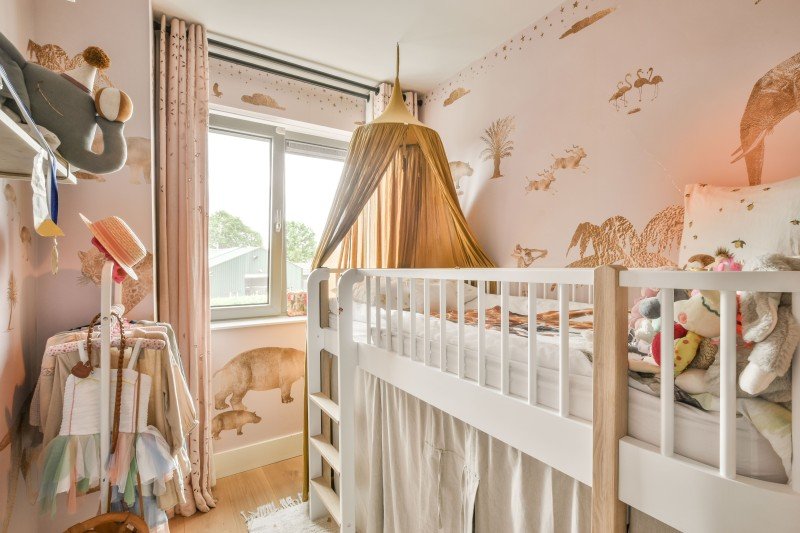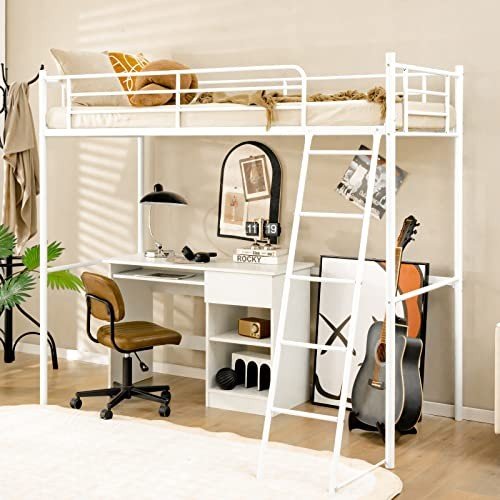When it pertains to styling a kid's room, parents typically deal with the dual obstacle of making the most of space while guaranteeing comfort and functionality. Bunk beds have actually become a popular option that deals with these needs, offering not just sleeping plans but likewise adding to a room's aesthetic. In this detailed guide, we will look into different aspects of kids's childrens bunk beds beds, focusing on their advantages, safety features, designs, and considerations for moms and dads pondering this purchase.
Bunk beds provide various benefits for children and their moms and dads. Here are some key advantages:

Space-Efficiency: Bunk beds are an excellent option for smaller rooms. By stacking one bed on top of another, more flooring space is readily available for play, storage, or research study areas.
Cost-Effective: When kids share spaces, sale bunk beds beds can reduce the need for acquiring two separate beds, hence saving money.
Cultivates Social Interaction: Bunk beds can assist siblings or good friends bond by sharing a space, creating opportunities for social development.
Fun Factor: The idea of sleeping "up high" adds a playful element to bedtime, making the shift to sleeping alone easier for some children.
Versatile Design: Bunk beds are available in various styles, colors, and creates to match any room theme, enabling personalization that shows the kid's personality.
Security is paramount when it pertains to children's furniture, specifically when it comes to bunk beds. Here are some vital security functions to assess:

| Safety Feature | Description |
|---|---|
| Durable Construction | Frames made from strong wood or metal are preferred. |
| Guardrails | Should be at least 5 inches high and extend along both sides of the upper bunk. |
| Ladder Design | Guarantee ladders are securely connected and have non-slip actions. |
| Bed mattress Size & & Fit | Must fit comfortably within the frame to avoid gaps. |
| Weight Limit | Always comply with the manufacturer's weight limit suggestions. |
bunk bed for teens beds can be found in a number of styles, dealing with numerous needs, preferences, and space sizes. Here are some typical types:
Standard Bunk Bed: The the majority of standard type, with one bed on top of another.
Loft Bed: Features a high upper bed with space underneath for a desk or play location.
Futon Bunk Bed: Combines a leading bunk with a futon on the bottom, offering versatility for seating and sleeping.
L-Shaped Bunk Bed: This design has the top bunk Beds children's set at a perpendicular angle to the bottom, producing a small corner area.
Triple Bunk Bed: Accommodates three children using stacked beds, ideal for large households or sleepovers.
When it concerns selecting a style for kids's bunk beds, the options are virtually unlimited. Here are some popular styles:
Traditional Style: Often made from wood, these bunk beds feature ornate details and are ideal for classic or rustic-themed spaces.
Modern Style: Characterized by tidy lines and minimalist styles, modern-day bunk beds can be made from metal or wood.
Themed Bunk Beds: Some brand names provide bunk beds formed like castles, automobiles, or playhouses, making bedtime less of a chore.
Convertible Bunk Beds: These can be separated into 2 specific beds, offering flexibility as kids grow.
Colorful Options: Bunk beds in lively colors can add a sense of joy and playfulness to any room.
Maintaining a bunk bed is essential for durability and safety. Here are some suggestions:
Regular Inspections: Check for loose screws or bolts every few months and tighten them as required.
Cleaning: Wipe down frames regularly to avoid dust accumulation; consider using a vacuum for hard-to-reach locations.
Bed mattress Care: Rotate bed mattress frequently and utilize protective covers to extend their life.
Watch for Wear and Tear: Look for any signs of damage in the wood or metal and think about changing parts if required.
Teach Kids Safety Rules: Encourage children to use ladders appropriately and ensure they comprehend the security features of their bed.
A1: Typically, children aged 6 and older are recommended for upper bunk bed near me sleeping, as they have the required motor skills to climb securely.
A2: Most bunk beds are offered as frames just, so you will require to buy bed mattress independently. Guarantee that the mattress fits the frame snugly.
A3: Many styles permit conversion into 2 specific beds, supplying versatility for future requirements.
A4: Comply with safety standards and ensure guardrails, a sturdy frame, and a protected ladder remain in place.
A5: Yes, always examine the producer's specifications relating to weight limits to ensure security.
Bunk beds for kids can serve numerous functions while ensuring security and design. With diverse designs and models offered on the marketplace, moms and dads can find an unit that not only optimizes bedroom space however also shows their kid's special tastes. As with any furniture, understanding safety features, maintenance, and how they suit a child's lifestyle will guarantee that these beds stay a useful furniture option for years to come.
Through mindful consideration and adherence to safety guidelines, bunk beds can provide a lasting, enjoyable, and practical sleeping service that kids love.
No Data Found!
